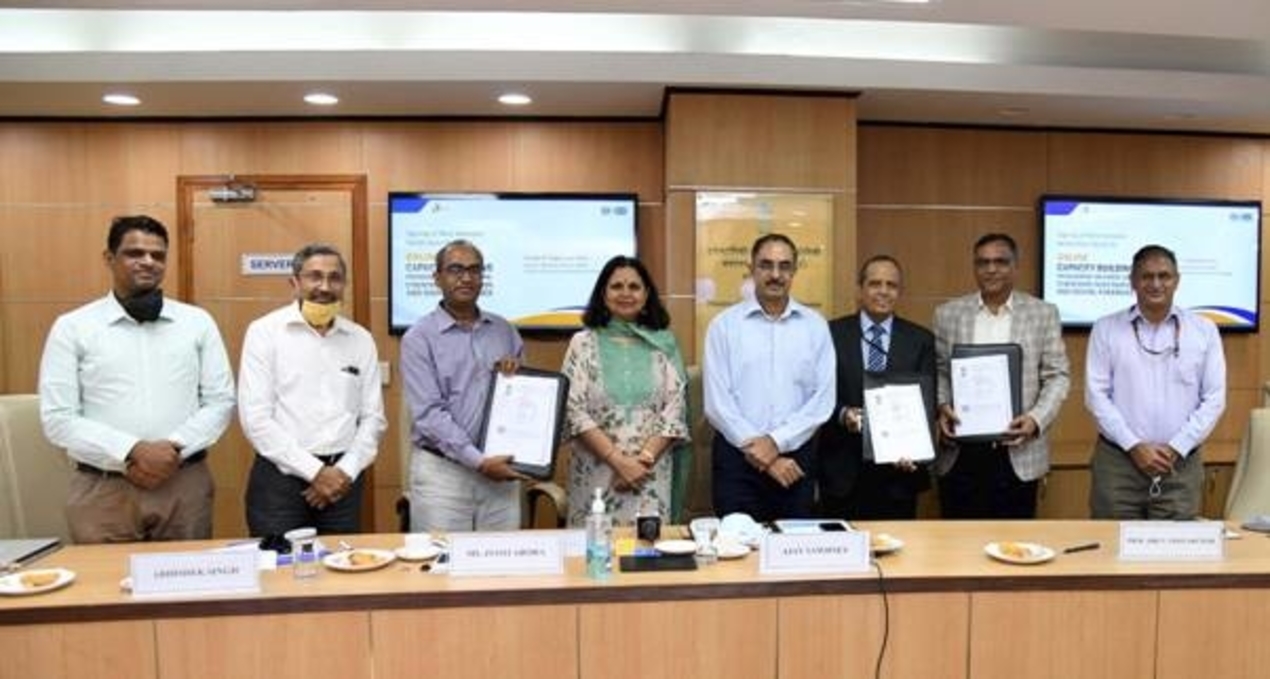
Under the Ministry of Electronics and Information Technology, the National e-Governance Division (NeGD) plans to establish cyber labs for the ‘Online Capacity Building Programme on Cyber Law, Crime Investigation and Digital Forensics’. The government has signed a memorandum of understanding (MoU) with the National Law University (NLU) in Delhi and the National Law Institute University (NLIU) in Bhopal to set up these cyber labs.
The goal of this programme is to provide police officers, state cyber cells, law enforcement agencies, prosecutors, and judicial officers with the skills to deal with cyber forensics cases efficiently and effectively as per the Indian Cyber Law. According to a press release, it aims to adopt the best global practices, standards, and guidelines. The NeGD, in collaboration with NLIU-Bhopal, is offering a nine-month online postgraduate (PG) diploma to 1,000 Officials through its learning management system (LMS). This programme enables users to learn on the go-anywhere and anytime. The first batch started last November with a total of 579 participants approved for the course.
An official at the inauguration event noted that the programme is expected to be met with enthusiastic response from a wide spectrum of law enforcement, from senior officers in law enforcement agencies and the judiciary. It holds immense potential for vast scalability since it is an online programme. With regards to expanding and strengthening the programme, the official spoke about the design of forensic labs and said that other law schools will be engaged in the hub.
Another objective of the programme is for each enrolled participant to undergo a practical training session and personal contact programme at the designated cyber lab to be set up in the NLU-Delhi campus to facilitate the course. The proposed cyber lab will be equipped with hybrid architecture, which supports both virtual and physical modes of capacity building in the areas of cyberlaw, cybercrime investigation, and digital forensics. The lab will have a training room with a capacity of 25 users and remote connectivity for 25 users each at a given time augmented with AR/VR features.
Other law schools and universities will be on-boarded in the hub and spoke models for future endeavours. The law schools will provide the necessary faculty members, expertise, and content for the virtual classes. NeGD will develop the e-content based on the support received from faculty members. NLIU-Bhopal, being the lead academic partner for the course, will award the PG diploma certificate to the participants who successfully complete the course.
India was ranked 10th in the Global Cyber Security Index (GCI) 2020, which was released by the United Nations specialised agency for ICT, the International Telecommunication Union (ITU). The United States ranked first, followed by the United Kingdom and Saudi Arabia. Estonia was ranked third, South Korea, Singapore, and Spain shared the fourth spot. Russia, the United Arab Emirates, and Malaysia shared the fifth spot, Lithuania came in sixth followed by Japan, Canada, and France. The countries were measured along five pillars, namely, legal measures, technical measures, organisational measures, capacity development, and cooperation to generate an overall score. The countries were asked 82 questions where 20 indicators were measured. India answered questions on legal measures for data protection of its citizens and its Computer Emergency Response Teams (CERT), which is responsible for coordinating responses to computer security events on a national level. India’s overall score was 97.49. It placed 4th in the Asia-Pacific region.
















